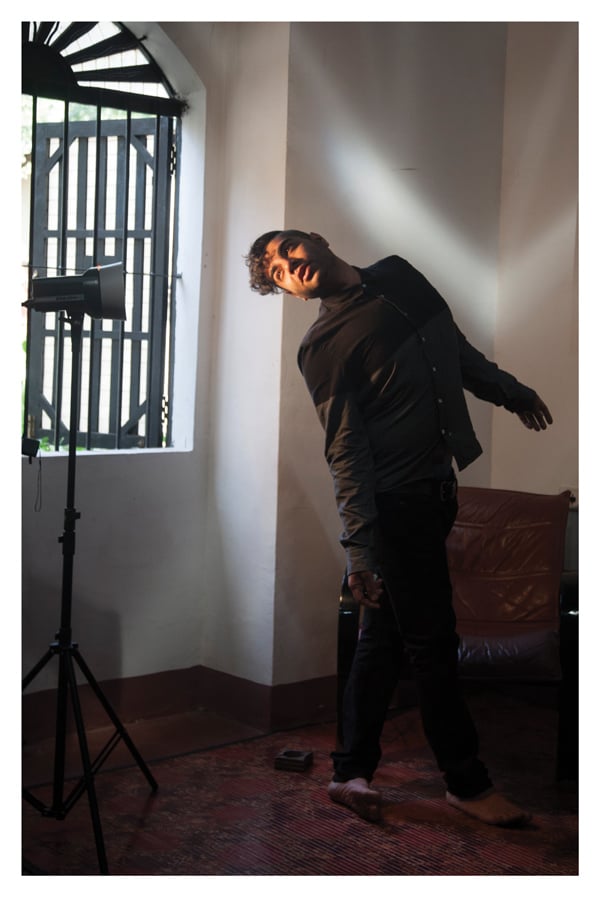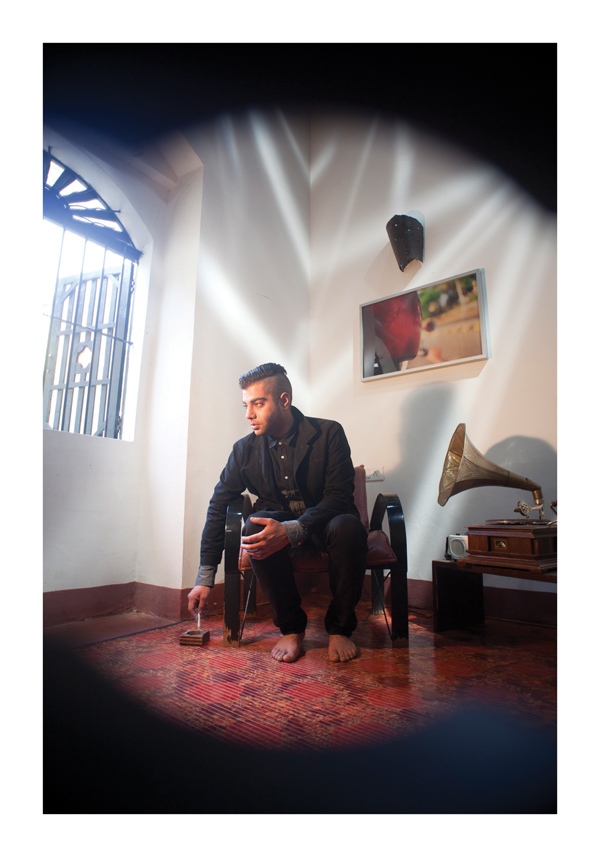Heems’ debut hip-hop album, Eat Pray Thug, serves as a powerful antidote to the vapid rap that has been dominating the airwaves, or perhaps more accurately, online streams as of late. The lexically intoxicated MC’s record is full-on insane in the most progressive way possible; Heems (born Himanshu Suri) can go from being fatalistically buoyant on the opening banger “Sometimes” to a dark and apoplectic tenor for the sobering “Flag Shopping.”
Despite how candid and stark Eat Pray Thug is, the former Das Racist MC manages to keep his emotions intact when it comes to the world chiming in on his art. “I’m not nervous [about releasing] it. It feels good to finally put Eat Pray Thug out there. The comments have been positive, people are responding to the political songs. The Indian kids on Twitter are talking about how it resonates with them.” He briefly pauses, wholeheartedly grateful by this occurrence. “It’s different from Das Racist, but people keep fucking with it.”
Das Racist, Heems’ former Brooklyn-based rap outfit, launched him into the decadent hipster stratosphere. The magnetism of their sarcastic, politically driven lyricism made them ripe for quite the cult following. But as each member breaks away from the group, their inevitable musical evolution shines brightly in the limelight; Heems is no different. “If you listen to Shut Up, Dude (Das Racist’s first mixtape), it’s me basically figuring out how to rap. It was one of our earliest sessions. I was in my early 20s in Das Racist and now I’m getting older. I wanted to do things that I haven’t done before.” His tone changes from pensive to factual. “Das Racist was known for experimental, fun, political rap. And when you’ve done experimental rap, how do you continue to push the envelope?”
Although Heems comes across as genuinely baffled by this notion, Eat Pray Thug is the rapper at his most confident and inventive. Not only does he reiterate his quick-spitting prowess on tracks like “Jawn Cage” and “So NY,” but he tries his hand at stadium-pop showmanship on “Pop Song (Games).” At a quick listen, it is a defiant, dancey-track. But Heems’ aplomb is borderline dangerous (“I’ll dive into your bones/And we’ll go swimming, love”), yet inexplicably irresistible.
He explains, “I’ve never really made a song like that. I’ve always liked pop and R&B – I grew up in the ’90s. Donell Jones is one of my favorite musicians.” He fleetingly sidetracks into a story about singing “Where I Wanna Be” for a recent makeshift karaoke outing at an “awesome bar that hasn’t been gentrified yet” before tying all of this into his creative process. “You can experiment more being in a band, it’s really a creative process. They rub off on you and you on them. You’re bouncing ideas off of each other and making jokes, and the jokes find their way into the raps. But this is just…it’s much more me. It’s been a cool process to work on stuff alone.”
During Eat Pray Thug’s labyrinthine journey, Heems’ sharp and elastic word proficiency scrutinizes the potency of racism and ignorance on a painfully personal level. “Flag Shopping” is a harrowing account of the price paid for assimilation in America (“I know why they mad/ But why call us A-rabs/We sad like they sad/But now we buy they flags”). “Patriot Act” blazes equally immense fury (“My name was too long to pronounce at work/ And raised too much attention/And I was labeled a troublemaker/So I changed it/ And we struck words like bomb from our vocabulary”).
But for those who may not connect at all with Heems’ Indian heritage, he believes his words still hold a disturbing amount of weight. “I just want people who listen to the album to catch a glimpse of fear or paranoia that [people of color] have in this country. Whether it was my mother saying to me after 9/11 that if I go out I’ll get beat or black families having discussions like these after Ferguson. Some people will never understand it, but if I can put them in that space for a second…I felt like that is what I wanted to do with this art.” Even Heems admits getting choked up on the album’s residual sentimentality. “’Patriot Act’ and ‘Flag Shopping’ are definitely really heavy and difficult to listen to. I can’t even listen to it; those are the songs I skip. It’s always too much.”
Despite the lucidity and weight of the content that saturates the album, Heems’ incendiary approach to his craft is the perfect combination of urgency and sincerity that could be gruesome in the wrong hands. And as his lyrics demonstrate, this is one of the most explosive hip-hop albums of the year.
Follow on Twitter @himanshu
photography by Shivani Gupta


